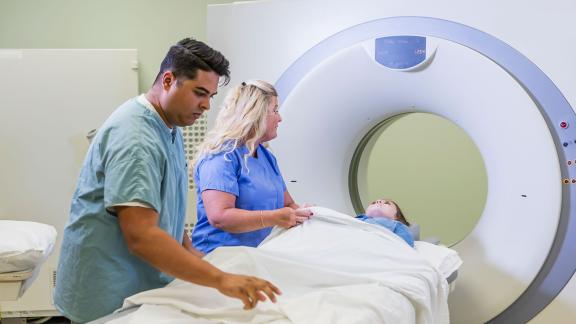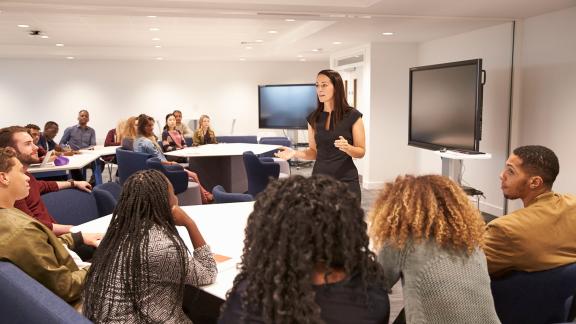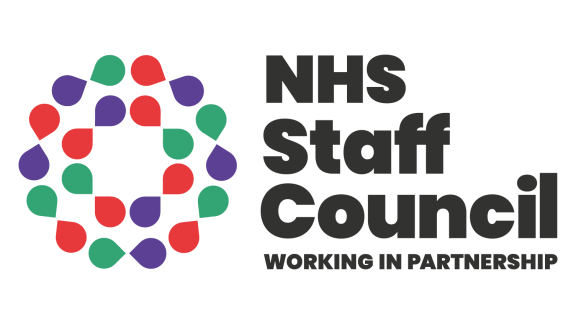Implementing SAS advocate and specialist roles

In this blog Kathy McLean, chair of University Hospitals of Derby and Burton NHS Foundation Trust (UHDB), describes how the organisation has developed specialty and specialist (SAS) doctor advocates who are leading the way in promoting health and wellbeing among the cohort, as well as promoting SAS doctor interests within the organisation. She also looks at the appointment of specialists within the trust.
I am very proud that UHDB was the first trust in the country to appoint a SAS advocate. We appointed Dr Gauri Sankhe, a specialty doctor in anaesthetics, to the role last autumn. The new role has been created to promote and improve support for SAS doctors’ health and wellbeing and Gauri has already had an amazing impact since starting in post. I really welcome her appointment and am a great supporter of SAS advocates being rolled out across the country.
I see the SAS advocate as a separate role to the SAS tutor role, with the advocate’s focus on health and wellbeing. Gauri attends our board meetings, so she really does act as an ear for SAS doctors to raise their concerns and she then works with the board to resolve these issues. SAS doctors are an invaluable part of our organisation, they make up about 10 per cent of our medical and dental workforce, and it is vital that the issues they face are raised at the highest level in the trust. I am delighted that UHDB is leading the way in this area with this appointment and the prominence that we give to the role.
Since starting in role, Gauri has been extremely busy with her advocate role. She has organised several wellbeing workshops for SAS doctors, been to external conferences to promote the SAS advocate role and has attended a recent meeting with the SAS tutors regarding the SAS charter. There are several actions that have arisen from these discussions and further work is being undertaken to address them. A meeting with the British Medical Association's industrial relations officer has taken place, sharing useful guidance in general about maintaining high professional standards, a bullying and harassment webinar and policies that will provide support when dealing with the relevant issues as part of the SAS Advocate role. Meetings with the wellbeing team at the trust, the SAS Health Education England associate dean at a regional level, and the Academy of Medical Royal Colleges SAS chair at national level, have been carried out as part of the networking element of the role and to develop the guidance for the SAS advocate role.
Our future work in this space will include:
- the development of relevant courses to be organised in collaboration with SAS tutors at UHDB
- a SAS database to be formed and grown
- an intranet page for SAS doctors via the channel of digital communication
- SAS leadership roles to be explored
- a SAS local survey and wellbeing elements to be reviewed.
Gauri’s achievements have allowed us to gain a better understanding of the challenges faced by our SAS doctors and to make a positive impact on their work-life experiences. This will ultimately result in better care for our patients.
UHDB has also appointed several specialists, which is another important new SAS role. Specialists are senior clinical decision makers who provide expertise in a specialist area. Our specialists are working in roles in general surgery, acute medicine, emergency medicine and oncology. They have overall responsibility for patient care and also carry out broader activities, such as management and delivering training.
We appoint all our specialists through an open and competitive process and are really happy that many of our specialists were previously highly experienced specialty doctors. These appointments have given these doctors the opportunity to progress their careers and the recognition they rightly deserve. It would be great to see the specialist roles being put in place across the country.
Looking back over the last year, I am immensely proud of how UHDB has implemented these new roles to promote and recognise the pivotal role that SAS doctors play in our organisation. I would encourage any trust who has yet to appoint to these roles to do so.



